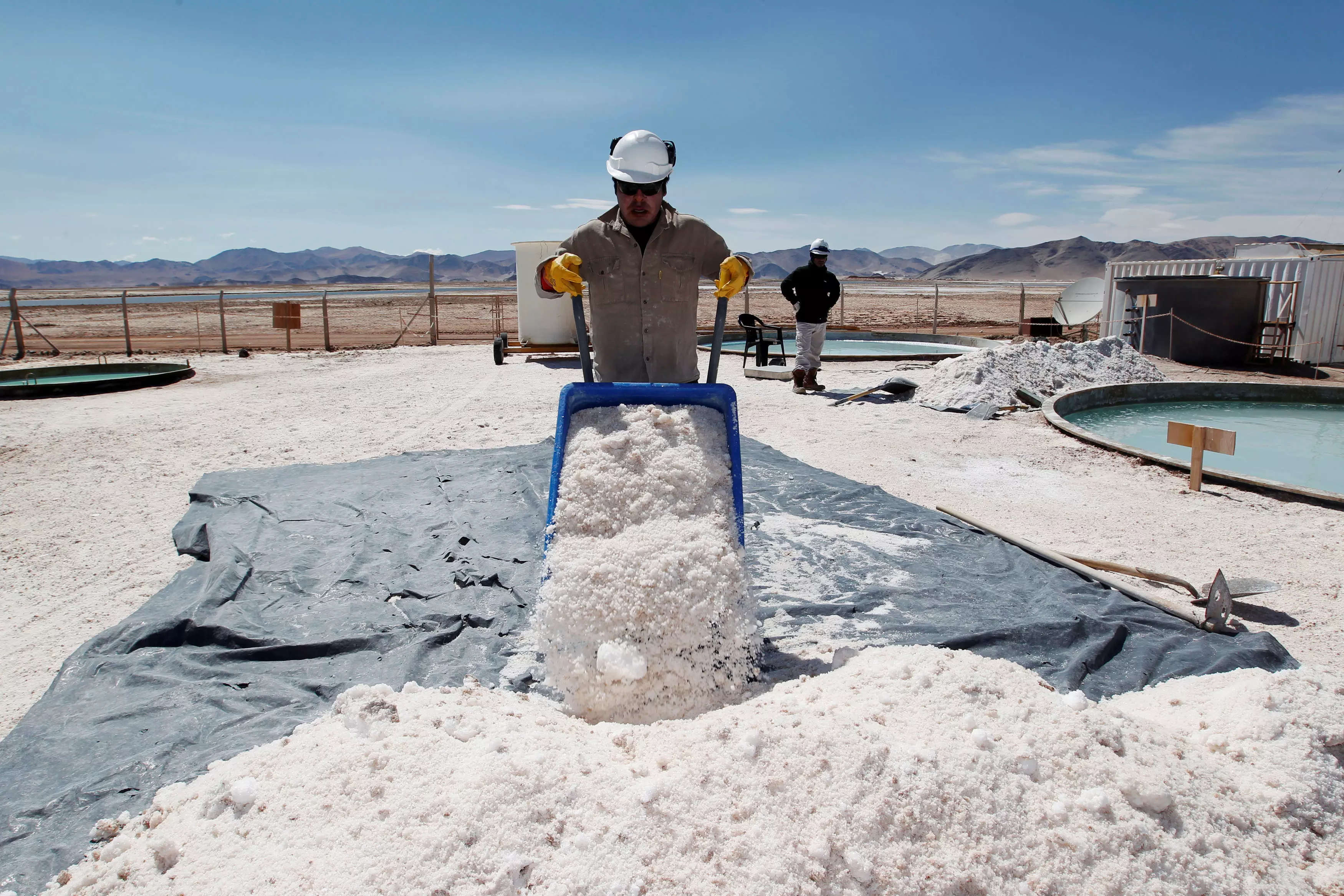
Bolivia is open to tie-ups with European and other global companies for lithium exploration and extraction provided they adhere to the country’s conditions, president Luis Arce said on Wednesday.
“We are open to any company that wants to come to Bolivia, but the conditions are clear,” Arce told Reuters in an interview, adding that his country wants to participate in the entire production chain.
“We have enough reserves so that several companies can be operating simultaneously without crashing into one another,” he added, mentioning that European firms would be well placed to participate. “What we want is efficiency in technology.”
Two Chinese and one Russian company are currently exploring three of Bolivia’s salt flats, with dozens of the formations still to tap. Bolivia’s estimated lithium reserves of 23 million metric tons are the largest in the world, but the South American country has yet to translate the potential into commercial-scale production.
Arce, speaking on the sidelines of the United Nations General Assembly in New York, said his country is in a race against time in lithium extraction, given the demand from a world looking to move on from its dependence on fossil fuels.
“We are in that line of doing it as quickly as possible because the world needs it.”
Despite speaking of the “climate crisis,” which Arce blamed on what he described as “the capitalist system,” he said Bolivia will “continue being a mining country, we are going to continue being a gas country and even a small oil country.”
FOREST OFFENDERS
Asked about a global 2030 zero-deforestation pledge, Arce maintained that his country would not sign up: “To say we are going to control or end deforestation has to come with action, not simply words,” the president said.
Bolivia was one of the worst offenders of primary forest clearances last year, behind only Brazil and the Democratic Republic of Congo, according to Global Forest Watch that monitors deforestation rates.
But Arce said Bolivia was one of the few nations that “perfectly understood the behavior of Mother Earth,” and how to protect it.
Environmentalists have criticized the government under Arce for supporting the country’s farm industry as a key economic driver to take the slack from falling exports of natural gas.
Vast areas have been cleared for soy and beef farms. An area of some 3,860 square kilometers (1,490 square miles) was cleared in 2022, according to Global Forest Watch.









